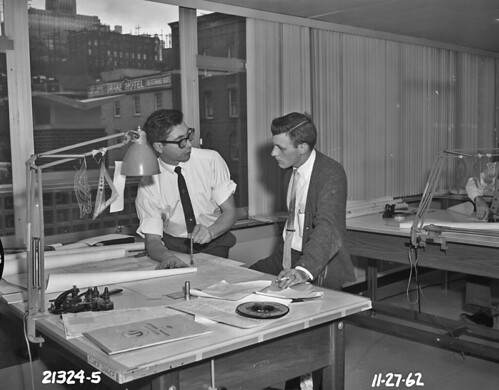“We especially need imagination in science. It is not all mathematics, nor all logic, but it is somewhat beauty and poetry.” Maria Montessori
By creativity I mean not only creativity as it applies to the arts, but also creative production (engineering, design, etc) and creative problem solving. More and more, employers say they need employees with these skills. On a societal level, the creative production of new products and more efficient methods is what creates real growth in our economy.
Other countries are beginning to realize this need. Many European countries are incorporating more creativity education into their curriculum.
What does that look like? One thing experts say is that creativity needs to come out of the art room and into the everyday classroom. Science, social studies, literature and even math should include more open-ended assignments with projects that require students to create solutions to a problem.
What about in preschool? A few curricula tout creativity as one of their major benefits including Reggio Emilia and Waldorf. I will be discussing these curricula in upcoming posts as well as other ideas for bringing creativity into the preschool classroom.
One final note, some preschools, especially those that call themselves progressive, boast “a belief that meeting children’s needs should take precedence over preparing future employees.” But one of children’s needs, a crucial need for their long-term happiness, is to one day be productive people, capable of making meaningful contributions to society. Creativity is one skill we can arm them with to this end.
I'll leave you with a video on how schools kill creativity. It is the second most-watched TED Talk of all time.
Picture Courtesy of Seattle Municipal Archives


2 comments:
Whereas most people find their education experience to become more liberal in its structure as they progress, with personal freedoms, structure, and scheduling at their most independent in college, I found just the opposite to be true. I went to a public Montessori school from ages 3-13 and it was a severe shock to reach high school and see desks arranged in a grid facing the front of the room. I was very confused--how was I supposed to ask the person behind me a question? How could I form a small group and discuss the material or work on a project together? How could I concentrate on something independently? And what do you mean I can't just go to the bathroom when I need to (like an adult would), but rather must announce my situation to get permission? And I can't call my teachers by their first names? That's weird; they call me by my first name. And what's with those strange bells over the PA system? Can't I be trusted to read a clock to know when to change classes? And so on.
The strange thing is, I went to a very liberal high school. It was not uncommon for students to skip class so that they could read philosophy in the hallway or skip out to the computer lab so that they could get some coding in before lunch. So long as you were maintaining your GPA, no one cared. Just how relaxed were they? Personally, I missed more than 20% of my classes--yes, 20%--and instead used that time to do research in a laboratory. Teaching styles were unique, too. Sometimes class would be held outside, sometimes we had guest speakers, and there was always discussion, discussion, discussion.
College was even weirder. For the first time, I had a class with mandatory attendance. For the first time, I had more than 30 people in my class. For the first time, professors didn't talk to me (or my classmates). Collaboration was discouraged, questions and interruptions during lecture were unheard of, tests were mostly multiple choice, and much of my learning was done by memorizing a text book (something that made me wonder why I was paying for the class when I could read a text book on my own).
I really disliked college until I found professors who were willing to work with me individually and work on a curriculum that was more catered to my interests. Many of the "freedoms" in college I assumed were natural, and much of the structure I found ridiculous, distracting, confining, and unnecessary. Most of my creative educational experiences came from younger years, but at least I had them. Lots of people don't get them until college (if at all), but by then they often don't know what to do with them. The lack of good, creative educational experiences makes people who don't know how to question. Creativity begets creativity. Everyone can learn to be creative, question, and think critically, but it is a rare person who can learn to do it alone when slogging through an educational desert.
Re: Rebecca
It sounds like you had a really rewarding education, all in all. And I think you might me right that half of the value of college is paying someone to make you read a book (although some of us probably need that motivation). In the end, do you feel like your education prepared you to have a happy life and contribute meaningfully to society?
Post a Comment